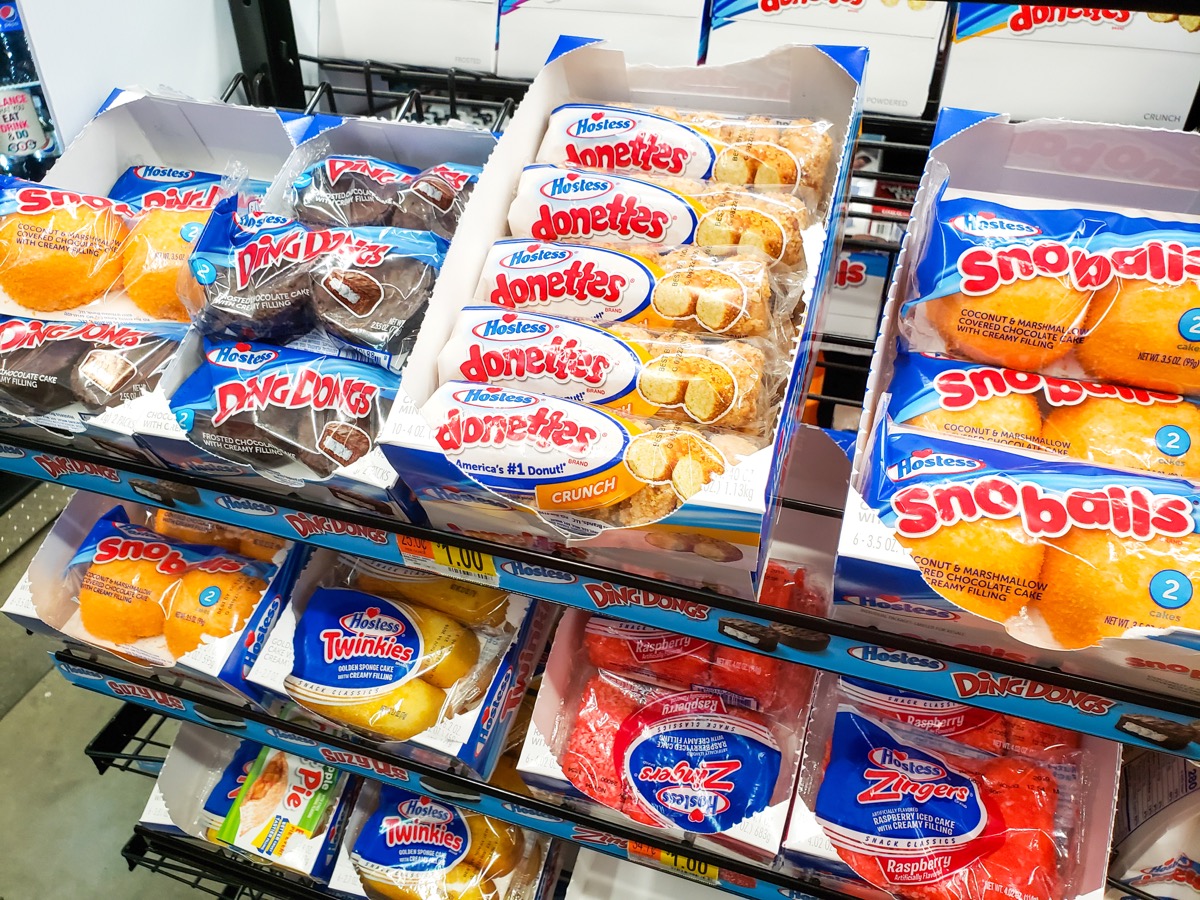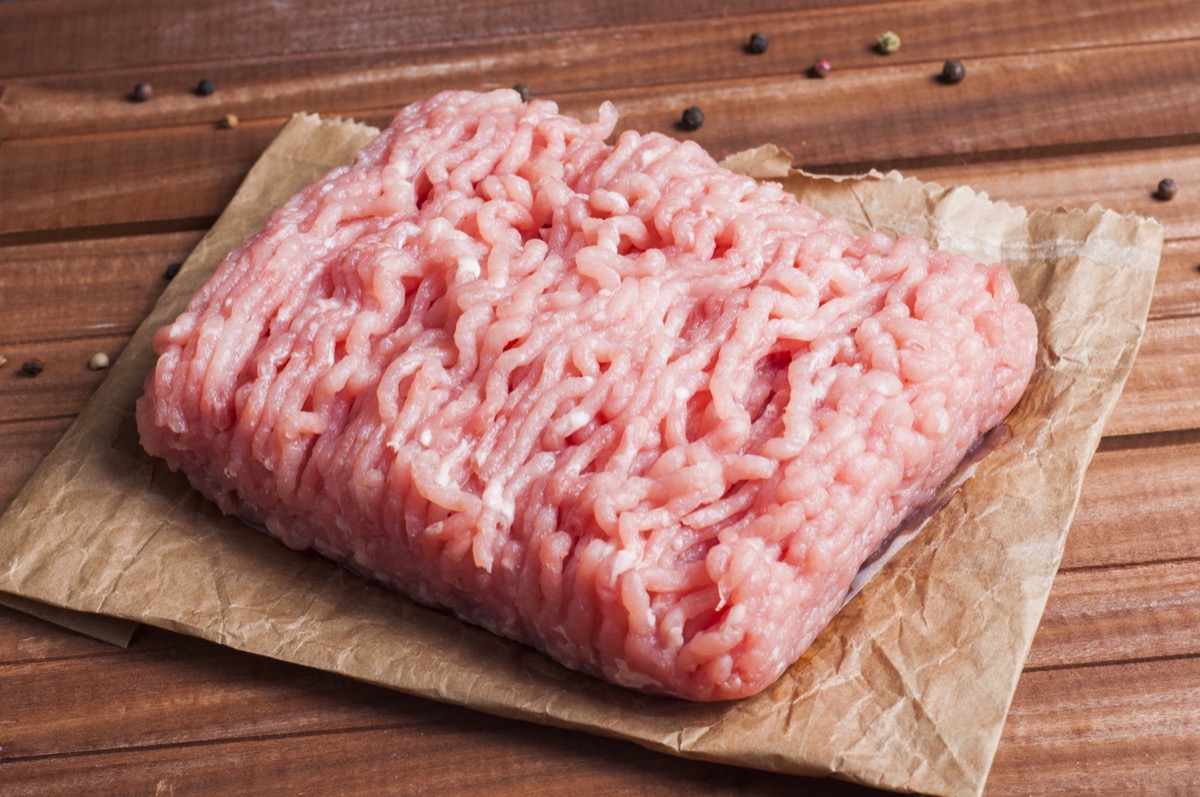The 9-oz. bags of chips, made by Snak King, were sold at Trader Joe’s stores in Alabama, Arizona, Arkansas, California, Colorado, Delaware, Idaho, Kansas, Louisiana, Maryland, New Jersey, New Mexico, Nevada, New York, Oklahoma, Oregon, Pennsylvania, Tennessee, Texas, Utah, Virginia, and Washington state, as well as Washington, D.C. The snacks were pulled from the market after it was discovered that they could be contaminated with milk that’s not disclosed on the ingredients list, which could present a “serious or life-threatening allergic reaction” to individuals with milk allergies or sensitivities, according to the recall notice. The chips affected by the recall, which have sell-by dates of 08/09/21, 08/10/21, and 08/11/21, should not be consumed, but can be returned to Trader Joe’s for a full refund. Individuals who purchased the chips can also contact Snak King at 626-363-7711 on weekdays from 8 a.m. to 5 p.m. PT. The Trader Joe’s tortilla chips aren’t the only food to be pulled from shelves recently, however; read on to discover which foods you’d be better off ditching now. And if you want to keep your loved ones safe, know that If You Bought This at Walmart, the FDA Says Stop Using It Immediately. On April 10, the FDA announced that Hostess had voluntarily recalled one batch of its single-serve size SnoBalls after it was discovered that they may contain an unlisted allergen. The SnoBalls were recalled after it was discovered that the desserts, which are typically coated in coconut, were packed in wrappers that did not disclose the common allergen in their ingredients list. The snacks in question are identifiable by UPC number 888109010096, batch number I031321000, and a best-by date of May 27, 2021. If you have the affected SnoBalls in your possession, you can return them to the store from which they were purchased or call Hostess at 800-483-7253. And for the latest recall news sent directly to your inbox, sign up for our daily newsletter. Turkey may generally be considered a healthy alternative to red meat, but there are some notable exceptions to that rule—especially now that there’s been an outbreak of salmonella hadar linked to ground turkey products. On April 10, the United States Department of Agriculture’s (USDA) Food Safety and Inspection Service (FSIS) issued a public health alert for approximately 211,506 pounds of ground turkey after it was discovered it could be contaminated with the dangerous bacteria. The affected products include 1-lb. packages of Nature’s Promise “Free From” 94 percent lean/6 percent fat ground turkey; 1-lb. packages of Plainville Farms ground white turkey, 93 percent lean /7 percent fat; 1-lb. packages of Wegman 94 percent lean/6 percent fat ground turkey; and 3-lb. packages of Wegman 94 percent lean/6 percent fat ground turkey. All of the affected turkey, which expired on various dates in Jan. 2021, has establishment number EST. P-244 printed inside the USDA inspection mark on the packaging. If you have the affected products in your freezer, return them to their place of purchase for a refund or destroy them, but do not consume them. And for another meat you should avoid, check out If You Have This Meat at Home, Throw It Away Now, USDA Says. That spicy sausage in your fridge could present a serious health risk, the USDA reports. On April 2, the FSIS announced a public health alert for approximately 39 pounds of Lonely Lane Farms Family Farm Since 1939 Oregon Raised Chorizo Sausage after it was discovered it may be contaminated with “hard pieces of crystalline material.” The affected sausage came in 1-lb. packages, which are printed with EST. M40256 inside the USDA inspection mark. While the sausage is no longer available for purchase, if you have it at home, you should not consume it; instead, throw it away or return it to its point of purchase. And for more health hazards hiding in plain sight, If You Have These Supplements at Home, the FDA Says “Destroy Them.“ae0fcc31ae342fd3a1346ebb1f342fcb Sabra makes some of the most popular hummuses on the market—but one was recently recalled due to safety concerns. On March 29, the FDA announced the recall of 2,100 cases of Sabra Classic Hummus in 10-oz. containers due to potential salmonella contamination. The affected hummus, which can be identified by UPC number 300067 and a best-by date of April 26, should not be consumed. If you have the recalled hummus in your fridge, return it to the store from which it was purchased or visit the Sabra recall site for more information. And if you want to protect your health, beware that If You Have This Bottled Water at Home, Stop Drinking It Now, FDA Says.



